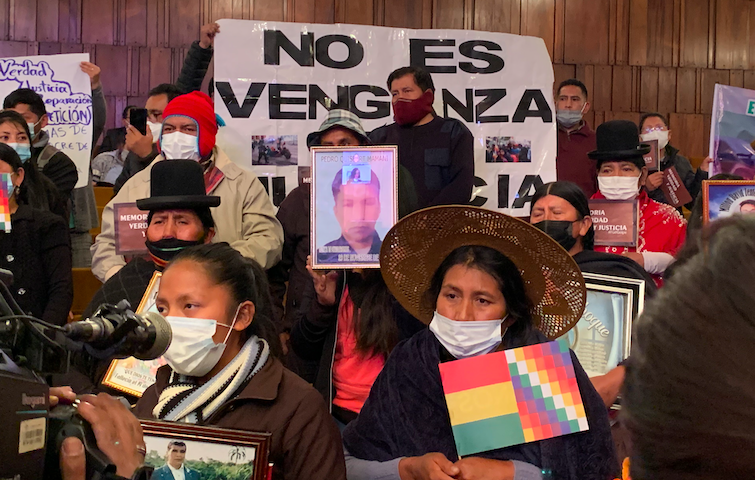Disir
Platinum Member
- Sep 30, 2011
- 28,003
- 9,611
- 910
...In the United States, fortunately, some Republican leaders rejected the move, and the police attempted to maintain order against the attacks of violent, organized right-wing groups, frustrating the coup. But in Bolivia, like the Proud Boys, Oath Keepers, and other paramilitary-style groups, armed right-wing gangs also went into action to intimidate Indigenous people and Morales’s supporters, working in tandem with the military while the police stepped aside. The coup succeeded.
In both countries, fake news and social media fueled the flames. In Bolivia, this included U.S. actors like a company called CLS Strategies, hired after the elections to propagate fake Facebook posts in defense of the de facto regime. Remarkably, a senior advisor of CLS Strategies at that time, Mark Feierstein, would go on to work as principal advisor to Samantha Powers, the current head of the United States Agency for International Development (USAID) until April 2022.
Among other actors in the Biden administration who seem to be apologists for the coup, U.S. Secretary of State Anthony Blinken tweeted about “concerns” after Áñez’s detention, demanding that she and other former regime officials be released. He also suggested—with no irony—that the Bolivian government was acting anti-democratically. Despite ongoing suggestions that Añez did not have due process, the Inter-American Commission of Human Rights, in response to a petition from Áñez herself, ruled last October that her rights were being protected.
In March 2022, the U.S. Congress approved a new spending bill that included language calling on the State Department to assess the experts’ reports on both the 2019 election fraud claims and the human rights abuses committed under the coup regime. The Biden administration appears to be dragging its feet. Statements and actions by officials in Washington seem to be going in the opposite direction, even with the report deadline less than a month away.

 nacla.org
nacla.org
This is an interesting point of view.
In both countries, fake news and social media fueled the flames. In Bolivia, this included U.S. actors like a company called CLS Strategies, hired after the elections to propagate fake Facebook posts in defense of the de facto regime. Remarkably, a senior advisor of CLS Strategies at that time, Mark Feierstein, would go on to work as principal advisor to Samantha Powers, the current head of the United States Agency for International Development (USAID) until April 2022.
Among other actors in the Biden administration who seem to be apologists for the coup, U.S. Secretary of State Anthony Blinken tweeted about “concerns” after Áñez’s detention, demanding that she and other former regime officials be released. He also suggested—with no irony—that the Bolivian government was acting anti-democratically. Despite ongoing suggestions that Añez did not have due process, the Inter-American Commission of Human Rights, in response to a petition from Áñez herself, ruled last October that her rights were being protected.
In March 2022, the U.S. Congress approved a new spending bill that included language calling on the State Department to assess the experts’ reports on both the 2019 election fraud claims and the human rights abuses committed under the coup regime. The Biden administration appears to be dragging its feet. Statements and actions by officials in Washington seem to be going in the opposite direction, even with the report deadline less than a month away.

Biden Bungles Bolivia
While the Biden administration struggles to impugn Trump for his attempted coup, its approach to Bolivia is undermining that country’s efforts to bring their own coup perpetrators to justice.
This is an interesting point of view.